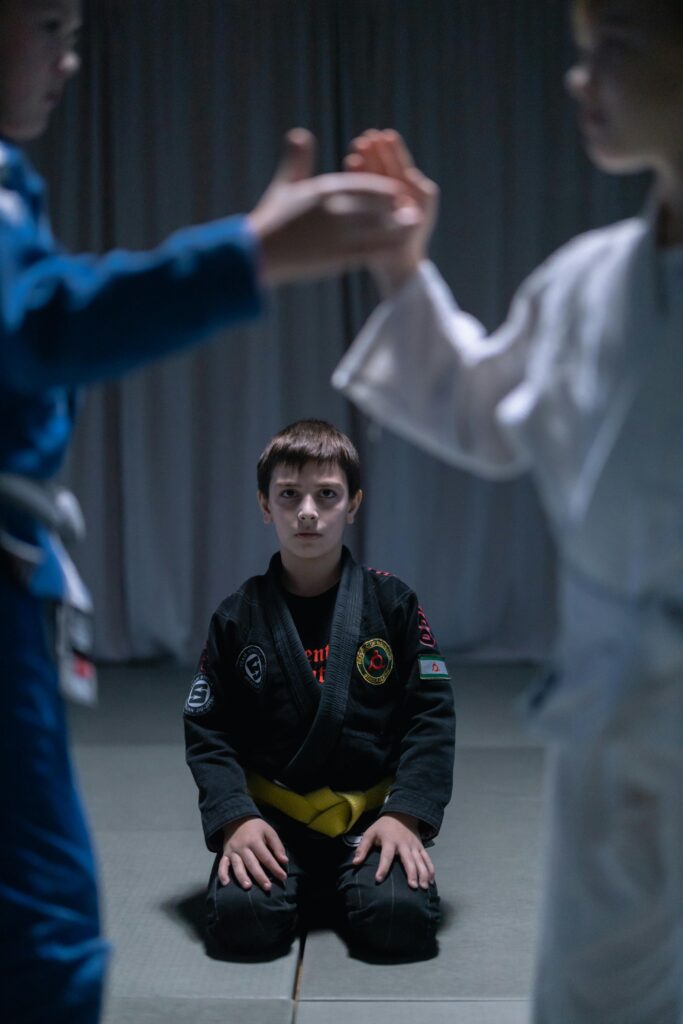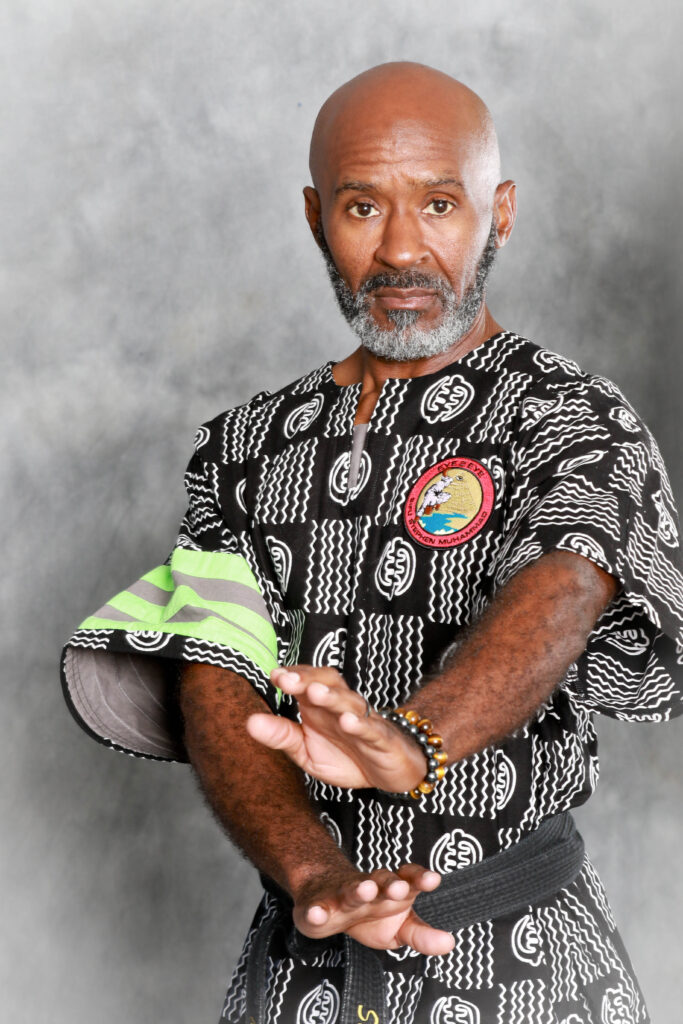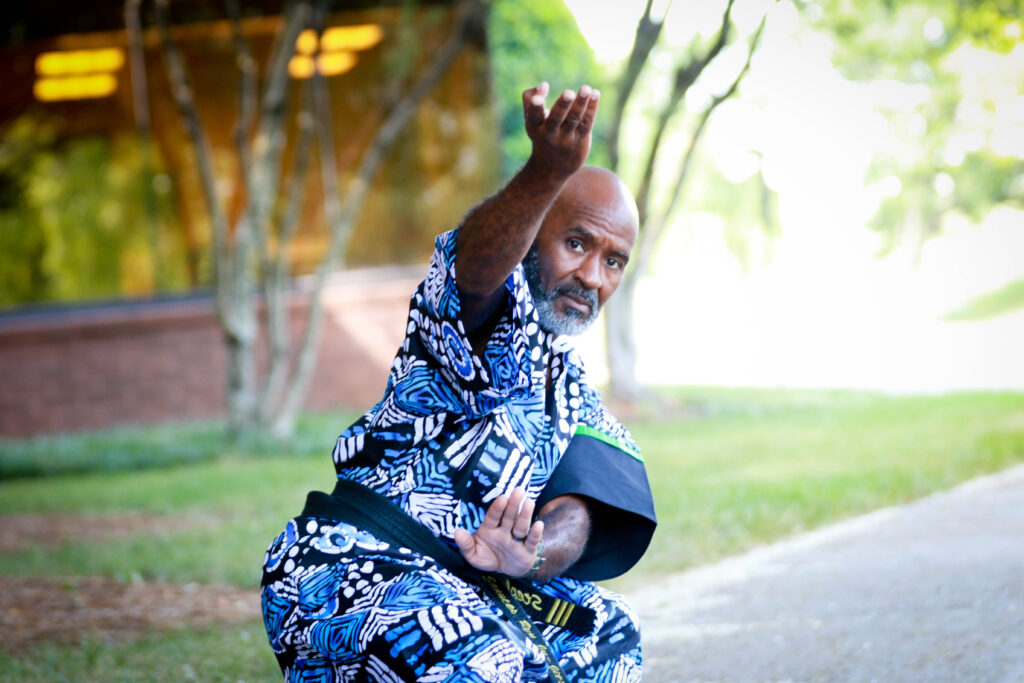Letting go can be one of the hardest things to do. But if there’s one thing that martial arts has taught me, it’s that letting go doesn’t mean giving up—it’s about learning to move with life instead of fighting against it.
You’d think martial arts, with all its focus on discipline and technique, would be all about control. But, ironically, it’s the art of letting go that makes you better—not just in martial arts, but in life.
Understanding the Martial Arts Philosophy of Letting Go
So, what does it mean to “let go” in martial arts? It’s something I’ve struggled with personally, and I see students struggle with it too.
When I first started training, I was all about controlling every little movement—whether it was a punch, a block, or a response to my sparring partner’s moves. I quickly realized that trying to control everything left me feeling tense and ineffective.
In martial arts, you have to learn to stop fighting against the natural flow of things. It’s not about overpowering your opponent or forcing your technique. It’s about using their energy and adapting in the moment.
This mental shift from control to flow is what makes martial arts so transformative.
Why Control Isn’t Always the Key to Victory
You’d think that the more control you have, the better you’d be at martial arts, right? That’s what I thought when I first started. But what I found was that the tighter I tried to hold on—whether to a move or to the idea of “winning”—the worse I performed.
I’ve seen this countless times with students too. Those who focus on controlling every single detail often end up exhausted, stiff, and frustrated.
But when you relax, trust your body, and let go of the need to control the outcome, everything changes. You become fluid, adaptable, and surprisingly, more powerful.
This is true in life as well. The more we try to control things outside of our influence, the more drained we feel. Letting go allows you to reserve your energy for what really matters.
Flexibility in Thought Mirrors Flexibility in Technique
In martial arts, physical flexibility is essential. But what doesn’t get enough attention is mental flexibility. It’s a game-changer, both on and off the mat.
I remember struggling to break out of old habits, both in my technique and in how I handled stress outside of training. I was rigid, stuck in the same patterns.
Then one of my instructors told me something that stuck: “You’ve got to be flexible in your mind if you want to be flexible in your body.” It made sense.
The same way your body needs to adapt to an opponent’s movements, your mind needs to adapt to new ideas, new challenges, and the unexpected.
In martial arts, this might mean being open to trying a different technique when your usual one isn’t working. In life, it’s about being willing to change your perspective when things don’t go as planned.
How Martial Arts Teaches Us to Balance Control and Flow
The real beauty of martial arts, I’ve found, is in learning when to hold on and when to let go. It’s a constant balance between control and flow.
There’s a time to execute precise technique, and there’s a time to release that need for precision and just move with what’s happening.
I’ve noticed that the more students practice, the better they get at finding this balance. It’s not about abandoning control altogether. It’s about knowing when to exert it and when to release it.
In fact, many martial arts moves, particularly in disciplines like Jiu-Jitsu and Aikido, rely on your ability to flow with your opponent’s energy, using their movement against them rather than trying to force an outcome.
This isn’t just a lesson for the dojo. Life works the same way. The more you try to control every outcome, the more stress and tension you create. But when you learn to flow with situations, you can respond more effectively and with less effort.
How to Face Life’s Challenges Without Resistance
One of the most valuable lessons martial arts teaches is how to face challenges without unnecessary resistance. If you’ve ever watched an Aikido demonstration, you’ve seen this in action.
The whole art is about redirecting energy rather than meeting force with force. Instead of resisting an opponent’s attack, you guide it and neutralize it.
I’ve applied this philosophy to so many areas of my life. When something goes wrong, my first instinct used to be to fight against it—to get frustrated or try to control the situation.
But what martial arts has taught me is that sometimes, you have to move with the situation, not against it.
Whether it’s a difficult work project or a personal conflict, I’ve learned that flowing with the challenge often leads to better outcomes than resisting it head-on.
Releasing Control Over Outcomes: The Martial Way
In martial arts, you learn pretty quickly that you can’t control everything. Sure, you can control your own movements, your breath, and your attitude, but you can’t control how your opponent will act.
The same goes for life. You can do everything “right” and still not get the outcome you want.
I used to struggle with this a lot, especially when I first started learning self-defense techniques. I wanted to master everything perfectly, but I had to let go of the idea of perfection and focus on progress instead.
When you release control over the outcome and just focus on what’s in front of you, you actually perform better. It’s a paradox that’s taken me years to fully understand.
This isn’t just about martial arts; it’s a life lesson. Whether you’re working toward a personal goal, handling a difficult relationship, or just trying to navigate your day-to-day responsibilities, letting go of the need to control the outcome is often the key to success.
Building Inner Peace Through Martial Arts Practice
I used to think that martial arts was all about building physical strength. But as I’ve spent more time practicing, I’ve realized that the mental benefits are just as significant.
One of the most surprising outcomes of my training has been the sense of inner peace I’ve developed.
Learning to let go—whether of tension, expectations, or outcomes—has helped me stay more grounded. I don’t get rattled as easily by things that used to bother me.
It’s not just about letting go physically, but also mentally and emotionally. And this inner peace, this calm in the middle of chaos, is what martial arts has given me.
The Connection Between Martial Arts and Mindfulness
Mindfulness and martial arts go hand in hand. Every movement you make in martial arts requires presence and awareness.
Whether you’re practicing a basic punch or an advanced technique, you have to be in the moment. There’s no room for distraction.
I’ve noticed that this mindfulness has carried over into other parts of my life. When I’m mindful in my training, I’m also more mindful in my daily activities.
I pay more attention to how I’m feeling, what I’m doing, and how I’m reacting to situations. And when I’m mindful, I find it easier to let go of stress and focus on what really matters.
Enhancing Mental Clarity and Focus by Surrendering Control
The funny thing about letting go is that it actually sharpens your focus. When you’re not bogged down by trying to control every little detail, you free up mental space to focus on what’s important.
This has been true in my martial arts practice, and it’s been true in my life.
When I first started training, I was constantly trying to think five steps ahead, trying to control every possible outcome. But what I realized is that this just made me less effective.
When I let go and just focused on the present moment—whether that was my breathing, my stance, or my opponent—I became much more effective.
Martial Arts Techniques That Reinforce Letting Go
There are several martial arts techniques that beautifully illustrate the power of letting go. In Jiu-Jitsu, for example, one of the core principles is using your opponent’s energy against them.
Instead of trying to overpower them, you go with their movement and redirect it. The same is true in Aikido, where techniques like Irimi Nage allow you to blend with an attack and neutralize it without exerting much force.
These techniques have taught me that sometimes, less is more. The less you try to force a situation, the more effective you can be. And this principle applies to everything from martial arts to navigating personal challenges.
Applying the Martial Arts Philosophy to Work and Relationships
One of the most practical applications of this philosophy of letting go is in work and relationships. I
’ve noticed that when I stop trying to control everything at work—whether it’s the outcome of a project or the behavior of my coworkers—I’m much more productive and less stressed.
The same goes for relationships. Letting go of the need to control others or to always be “right” has made my personal relationships much healthier and more fulfilling. Just like in martial arts, when you let go and go with the flow, everything becomes easier.
Staying Calm Under Pressure
One of the biggest gifts martial arts has given me is the ability to stay calm under pressure.
Whether I’m sparring with an opponent or dealing with a stressful situation in life, I’ve learned that staying calm and letting go of unnecessary tension is the key to handling pressure with grace.
The techniques I’ve learned on the mat—like controlled breathing and mental focus—are the same ones I use in high-pressure situations outside the dojo. And they work just as well in both contexts.
Letting Go of Ego: A Vital Lesson from Martial Arts
Finally, martial arts has taught me the importance of letting go of ego. It’s easy to get caught up in wanting to be the best, to win every match, or to prove yourself.
But the truth is, the real growth comes when you let go of that ego-driven need for validation.
Letting go of ego allows you to focus on learning, improving, and growing—both as a martial artist and as a person. And that’s where the real rewards come from.
Flow with Life, Not Against It—Explore Eye2Eye Combat Today
Martial arts has taught me a lot about letting go. It’s not about giving up—it’s about learning to flow with life instead of fighting against it.
This lesson in balance and adaptability is at the core of Eye2Eye Combat’s philosophy. If you’re ready to take your mental and physical resilience to the next level, Eye2Eye Combat offers a unique space where you can learn these life-changing skills.
Reach out today, and discover how martial arts can help you let go, flow, and grow stronger every day.
FAQs
How will martial arts improve your self-control and self-discipline?
Martial arts naturally builds self-control and discipline through consistent practice. You learn to stay focused, follow through with techniques, and push yourself beyond your comfort zone. Over time, this discipline carries into your daily life, helping you stay centered.
How do martial arts help in your life?
Martial arts isn’t just about physical fitness; it teaches mental resilience too. You learn to handle stress, stay calm under pressure, and adapt to challenges. These skills translate directly into work, relationships, and everyday life.
How will martial arts improve your self-esteem and confidence?
As you grow in martial arts, each achievement—big or small—boosts your confidence. You start seeing what you’re truly capable of, which naturally raises your self-esteem. You walk away feeling empowered, both on and off the mat.
How does practicing martial arts help you master your mind and emotions?
Through martial arts, you learn to stay present and calm, even in challenging situations. Whether you’re sparring or facing a personal struggle, martial arts teaches you to control your emotions, focus your mind, and respond thoughtfully rather than react impulsively.





